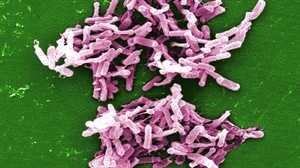
Fecal transplants cure most cases of C. difficile, first clinical trial shows
TORONTO – Fecal transplants cure most cases of persistent C. difficile infection, a landmark study shows.
That comes as no surprise to the increasing numbers of people who have turned to this unorthodox treatment for relief from the debilitating condition.
But this publication marks the first time a randomized controlled trial — the highest form of scientific proof — has shown that the treatment is effective.
“Overall I think this paper is an important paper to say that performing fecal transplants does work,” said Dr. Tom Louie, an infection prevention and control expert in Calgary who has performed more than 100 fecal transplants. He was not involved in this study.
“It will lead us to the tipping point where … people may be more aware of the value of the normal bowel flora. This is verification that good bugs help.”
The study is published Wednesday in the New England Journal of Medicine, one of the most prestigious medical journals in the world. It was done by researchers from the Netherlands.
The team used a tube snaked from a nostril down into the duodenum — the top of the small intestine — to deliver the fecal transplant to the patients’ intestinal tracts.
The donor feces, from people who were screened for a variety of infectious diseases, were mixed with saline, stirred and then allowed to sit. Later the fluid was separated from the solids and only the fluid was used.
The study was stopped early when it was clear that fecal transplants were far superior to the alternatives the procedure was tested against: the antibiotic vancomycin, which is the standard treatment for C. difficile diarrhea; or a treatment called bowel lavage — a cleansing out of the bowel, like the preparation for a colonoscopy — followed by vancomycin.
Of 16 patients who received a fecal transplant, 13 were cured of their C. difficile after a single treatment. Two of the remaining three were cured after a second transplant from a different fecal donor, for an overall cure rate of 94 per cent.
Only four of 13 patients (31 per cent) who received vancomycin were cured; three of 13 (23 per cent) who had the bowel lavage followed by vancomycin were cured.
After the trial was completed, the people who had not been cured by the antibiotic were offered the option of having a fecal transplant. Eighteen additional patients underwent the procedure and 11 were cured on the first try. An additional four were cured after a second transplant.
Join the Conversation!
Want to share your thoughts, add context, or connect with others in your community? Create a free account to comment on stories, ask questions, and join meaningful discussions on our new site.













Leave a Reply
You must be logged in to post a comment.